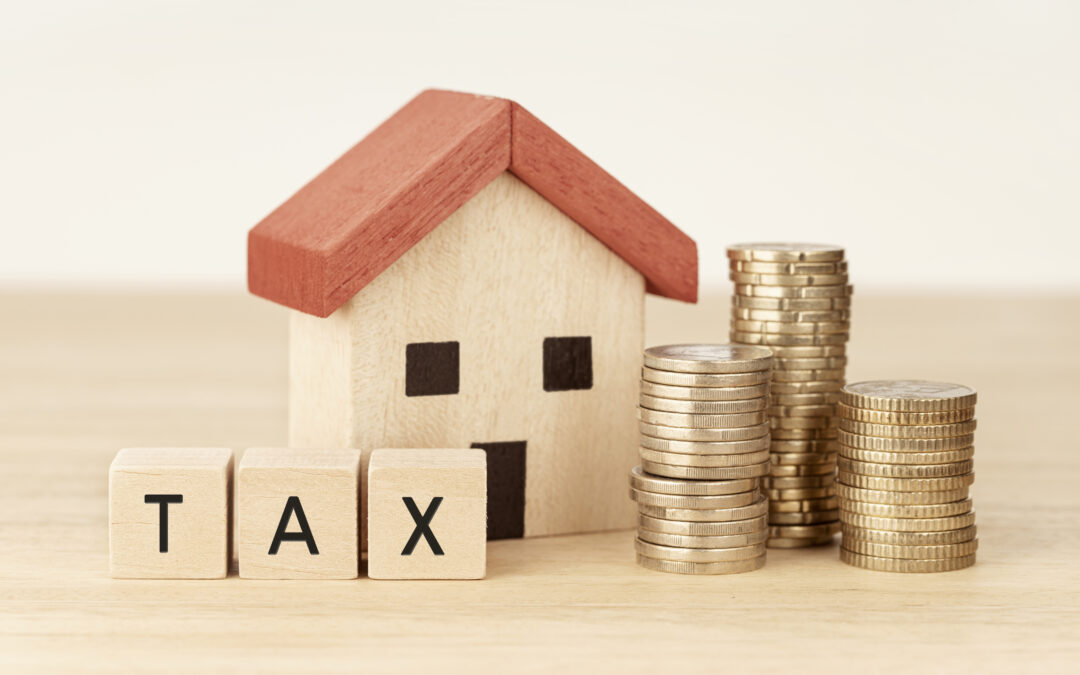Did you know that passive income is taxed at a much lower rate than earned income? That means you get to keep more of the profits that you earn from investments than you do from your paycheck. As far as tax-advantaged investments go, real estate is one of the best. In fact, you can actually earn tax-free income using a number of different real estate investing strategies. This blog will cover three of them:
1. Depreciation
2. 1031 Exchange
3. Legal Structure
3 Real Estate Investing Strategies for Tax-Free Income
1. Depreciation
Depreciation allows you to deduct approximately 1/27th of the value of your property, not counting the land, from your taxes. The loss of depreciation goes directly against any kind of profit or gains that you had on the property. You can also deduct any interest that you are paying on the home loan.
Whereas depreciation is surely a tax-benefit of home-ownership, there’s a way to make real estate completely tax-free income. It’s called the full-time real estate professional designation. This designation is for individuals who own their real estate business and spend at least 750 hours a year (about 15 hours a week) working on managing and growing their portfolio. Real estate professionals are exempt from the 3.8% tax on passive income because, due to the number of hours they spend on the business, their work is not necessarily passive.
Without the real estate professional designation, you can only deduct a maximum of $25,000 annually. If you have a modified adjusted gross income of $150,000 or more annually, you will not receive depreciation deductions unless you have the designation.
So, beginner investors should aspire towards getting their real estate professional designation. If you combine real estate investing strategies like buying and holding with fixing and flipping or wholesaling, this designation will be easier to get. For example, I have a student who raised money for purchasing properties through wholesaling. He purchased a six-unit building and was always looking for bargain deals. As his wholesaling business grew, he received the real estate professional designation in his first year of investing!
To learn more about how to acheive the real estate professional designation and maximize the tax-benefit of depreciation, sign up for our upcoming WealthBuilders Real Estate Workshop. We will show you the best strategies to start and scale your real estate portfolio — click the banner below to learn more and register.
2. 1031 Exchanges
A 1031 Exchange allows investors to trade one investment property for another and pay NO capital gains taxes on the property they sell. This is called rolling over your gains into another like-kind property. The federal government capital gains rate is 15%, and every state rate varies. In my home state of Colorado, the state capital gains rate is 4.55%.
This tax benefit is absolutely amazing. For example, let’s say that I sell a $300,000 property for $400,000 after I owned it for at least 12 months. A 1031 Exchange allows me to take the $100,000 profit as tax-free income and use it towards the purchase of another property.
Technically, the taxes are deferred. However, no taxes are due during your lifetime. At the end of your investing life, you can roll the 1031’s into a Charitable Remainder Trust. Then, your heirs can receive benefits from those assets.
It’s worth noting that your primary residence can be even better for your taxes. You can sell your personal house and take a $500,000 exemption on two different properties. So, you can make $1,000,000 in tax-free income from two houses if each is considered your primary residence within two of the last five years. By stacking the 1031 Exchange capital gains exemption for investment properties on top of the resident exemption on your primary residence, you can make big profits with huge tax advantages!
Related: Is it a Good Time to Invest in Real Estate? 2024 Housing Market Outlook
3. Legal Structure
How you structure your real estate business entity has huge implications for your taxes. For example, C-Corps are essentially taxed twice– once on the earnings it makes as a corporation, and once on the income you receive personally from that corporation.
The best way is to set up your properties in a Family Limited Partnership that owns an LLC. Then, put each property in a land trust owned by the LLC. (If this sounds complicated and you want to learn more, be sure to register for our upcoming Real Estate Workshop. We will cover all kinds of legal and tax advantages, as well as have ample opportunities for Q&A.)
In an LLC, income flows through you as an individual, and you are only taxed one time on that income. Depreciation flows to you personally, and the government lets you count it as a loss. In addition, an LLC helps in estate planning. It can provide a vehicle for passing the wealth to your younger family members without having to retitle the real estate. Once the real estate is transferred into an LLC, the members’ interest is converted to personal property that is represented by shares that are in the LLC. These shares can be transferred and given to your beneficiaries incrementally up to $10,000 per year as tax-free income.
I hope this blog helped you understand how to leverage real estate as a tax-advantaged investment. If you are serious about creating passive income through real estate, you can learn more in my book Strategic Real Estate Investing. Click here to get it for just $19.99.




